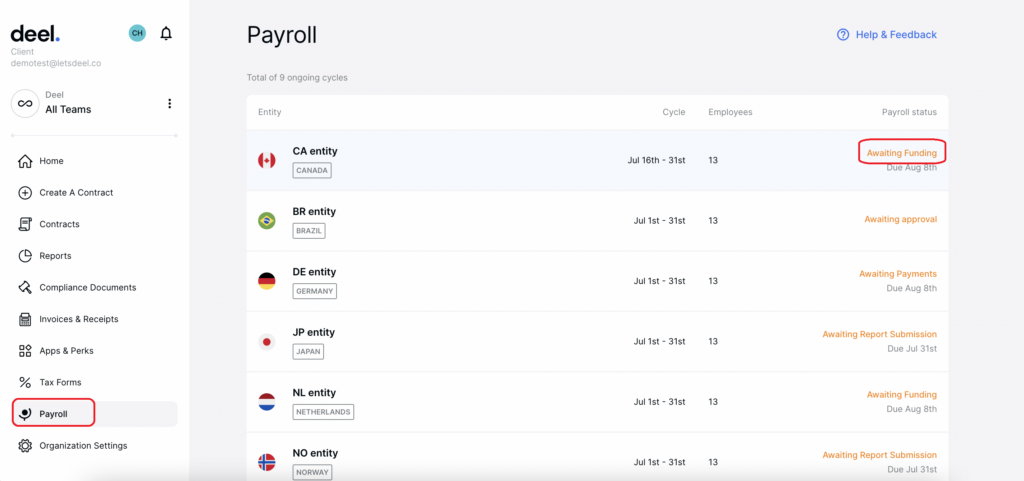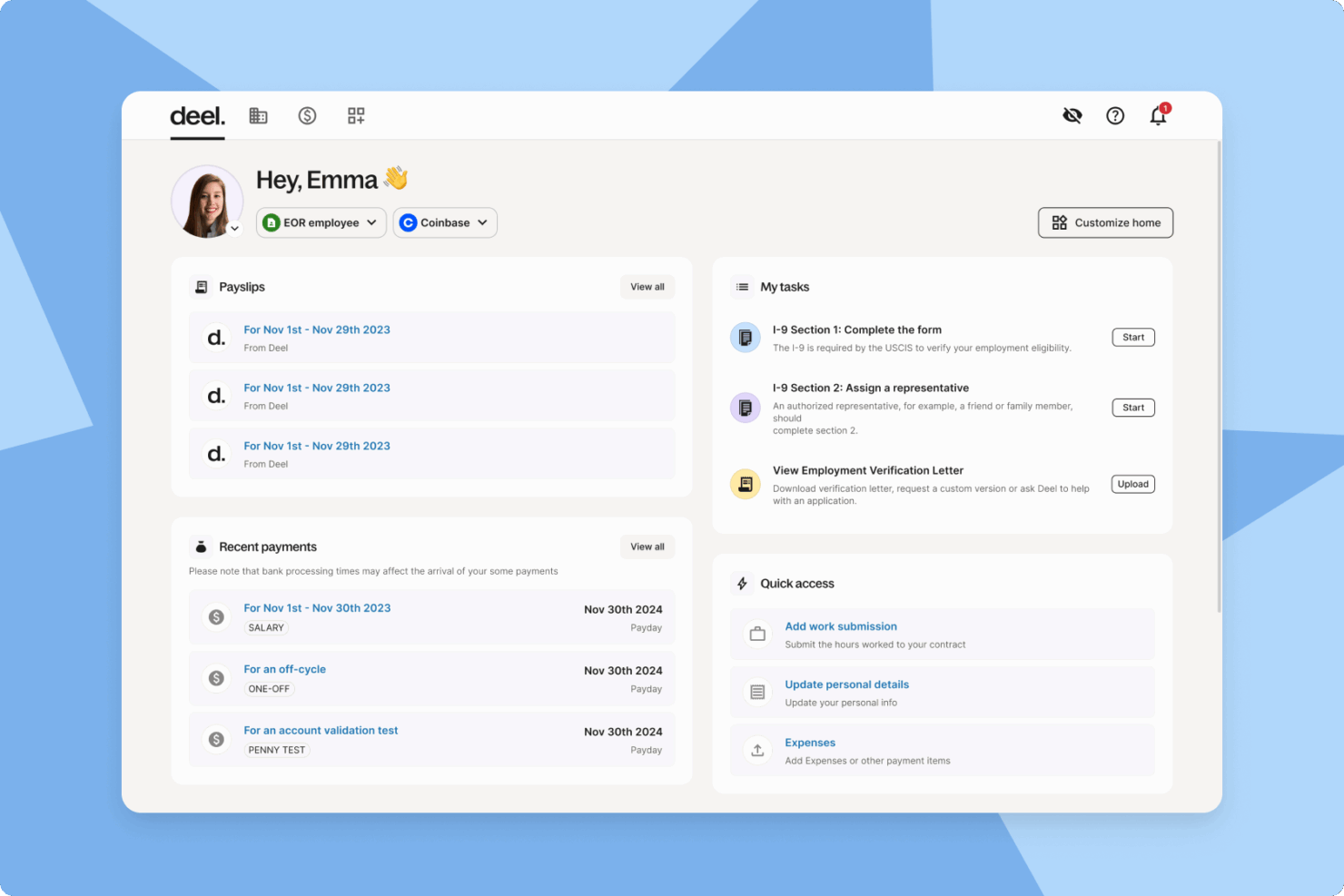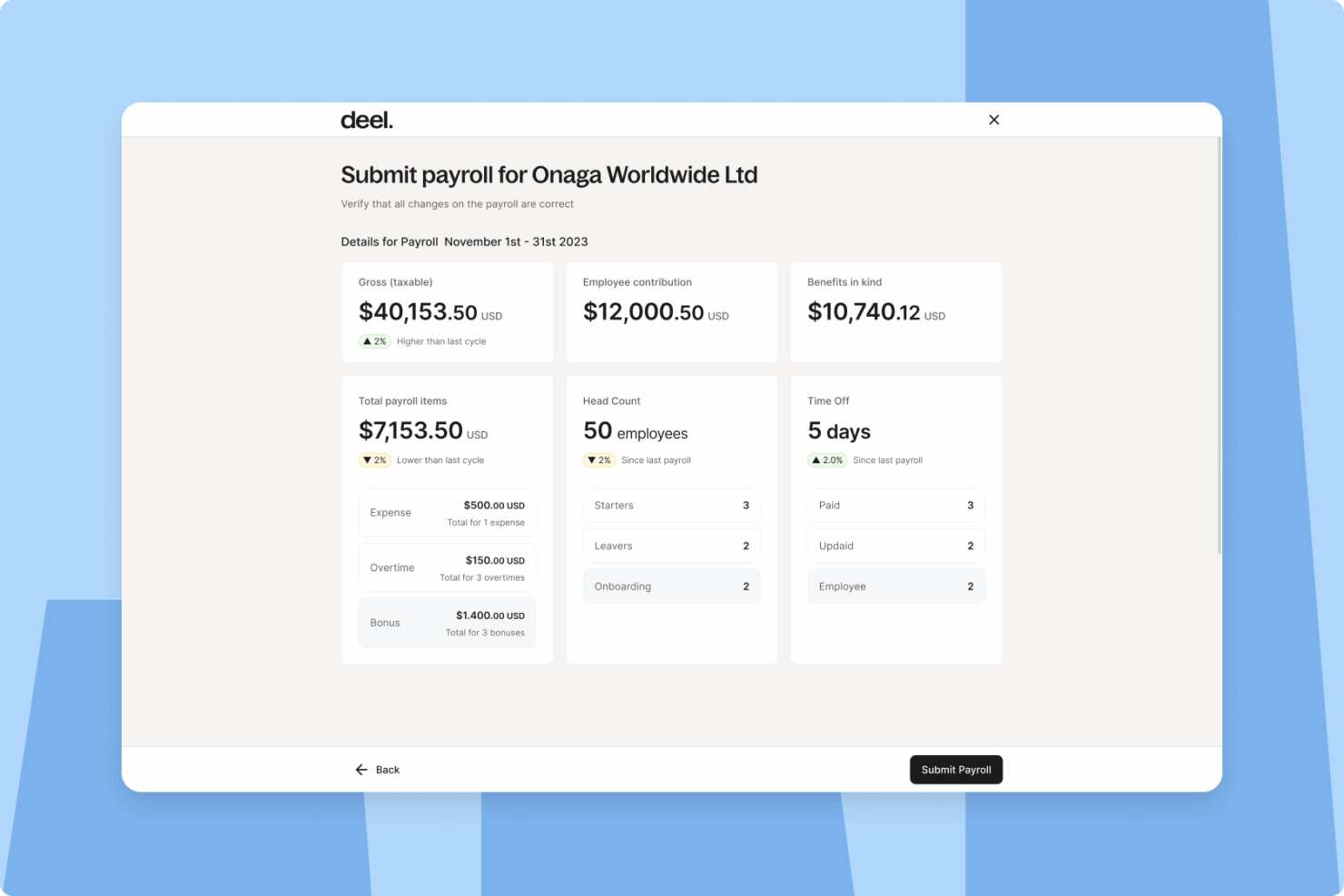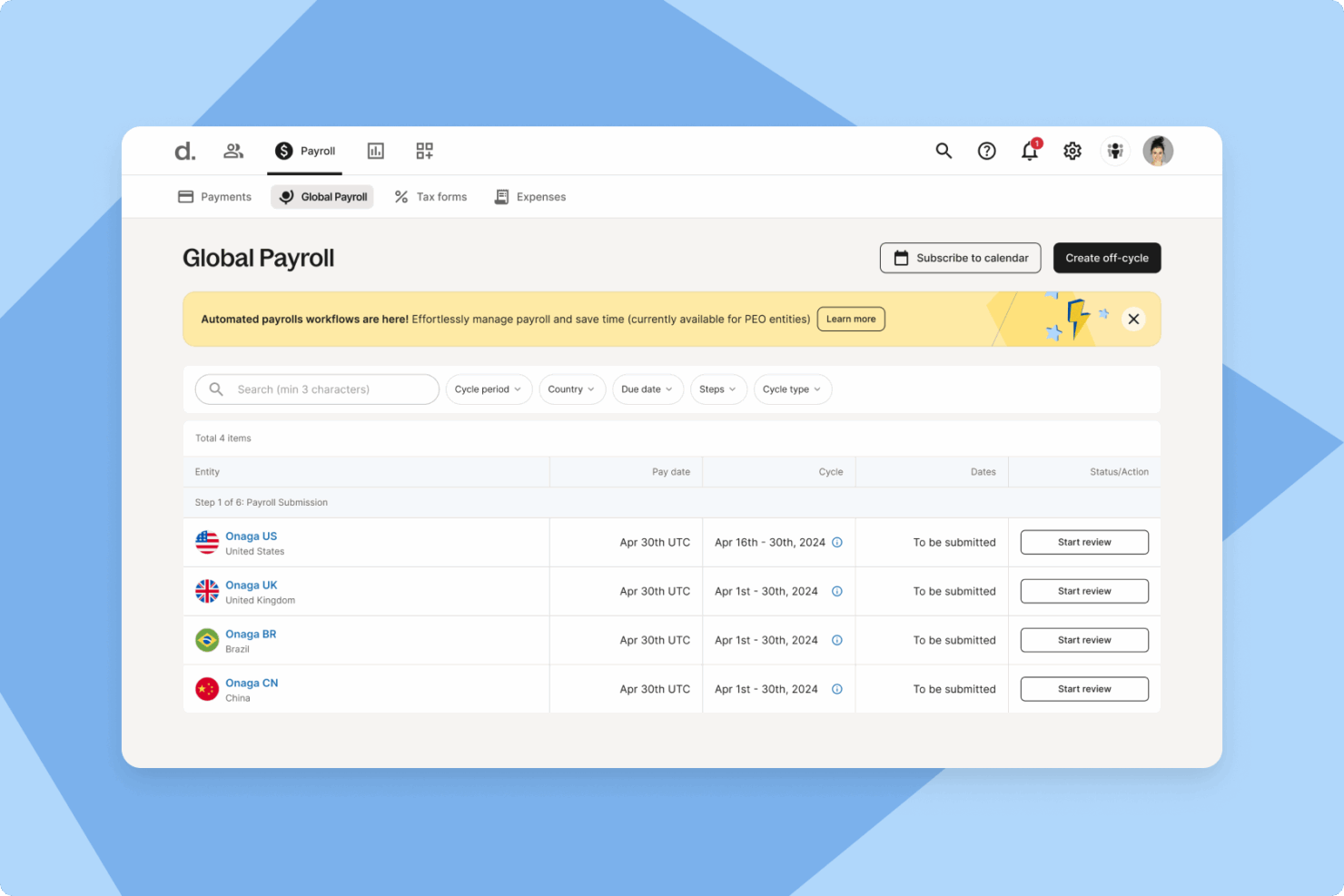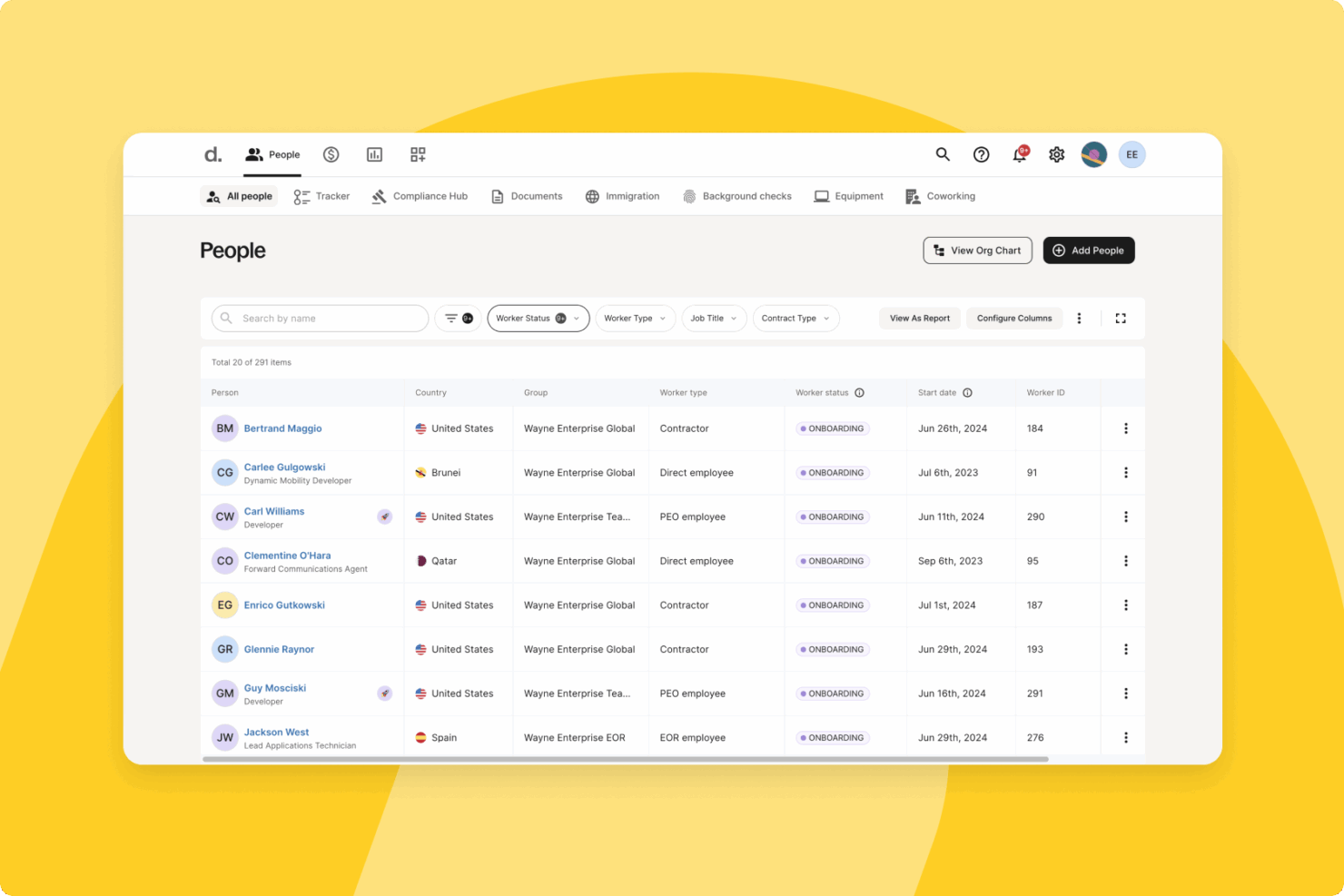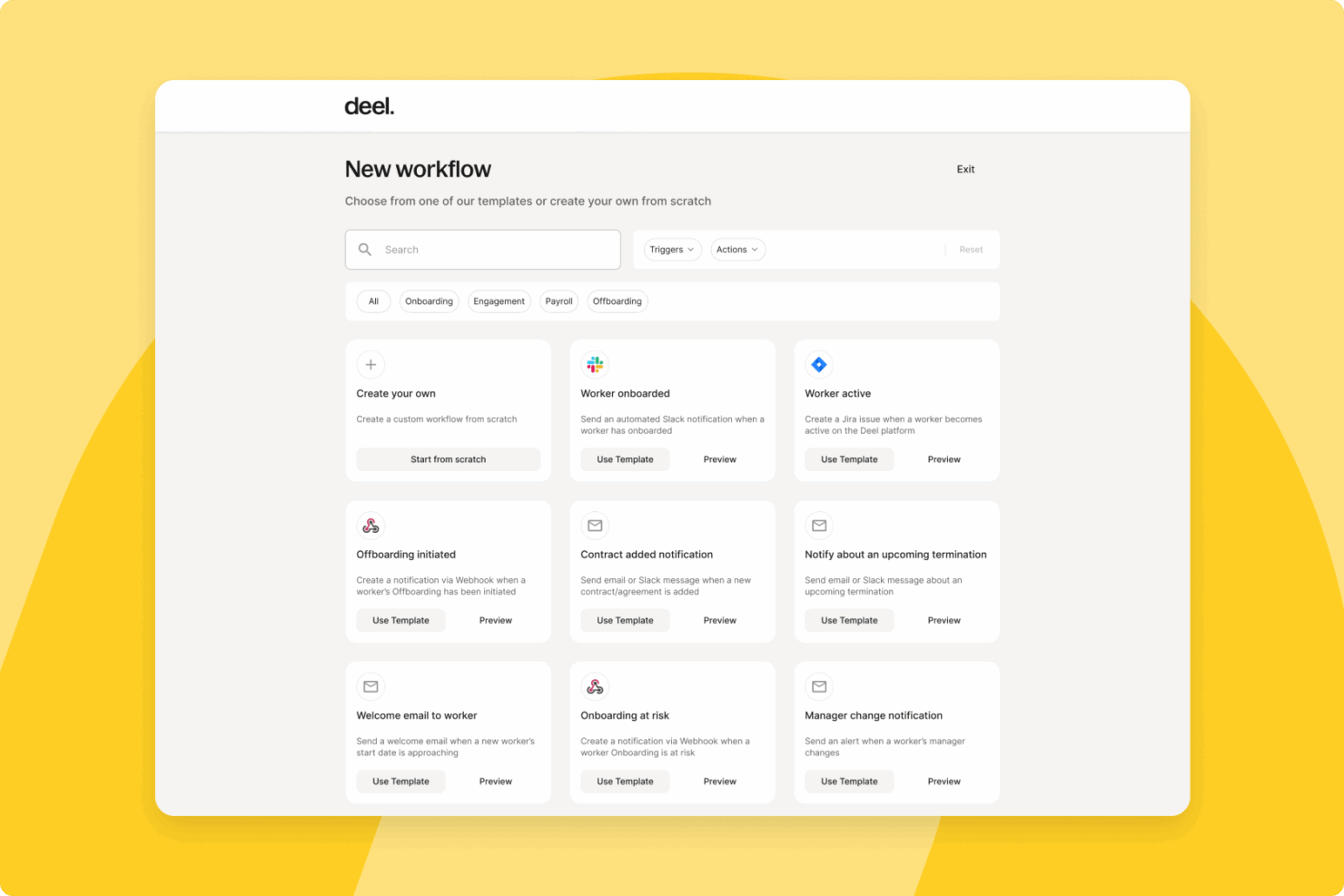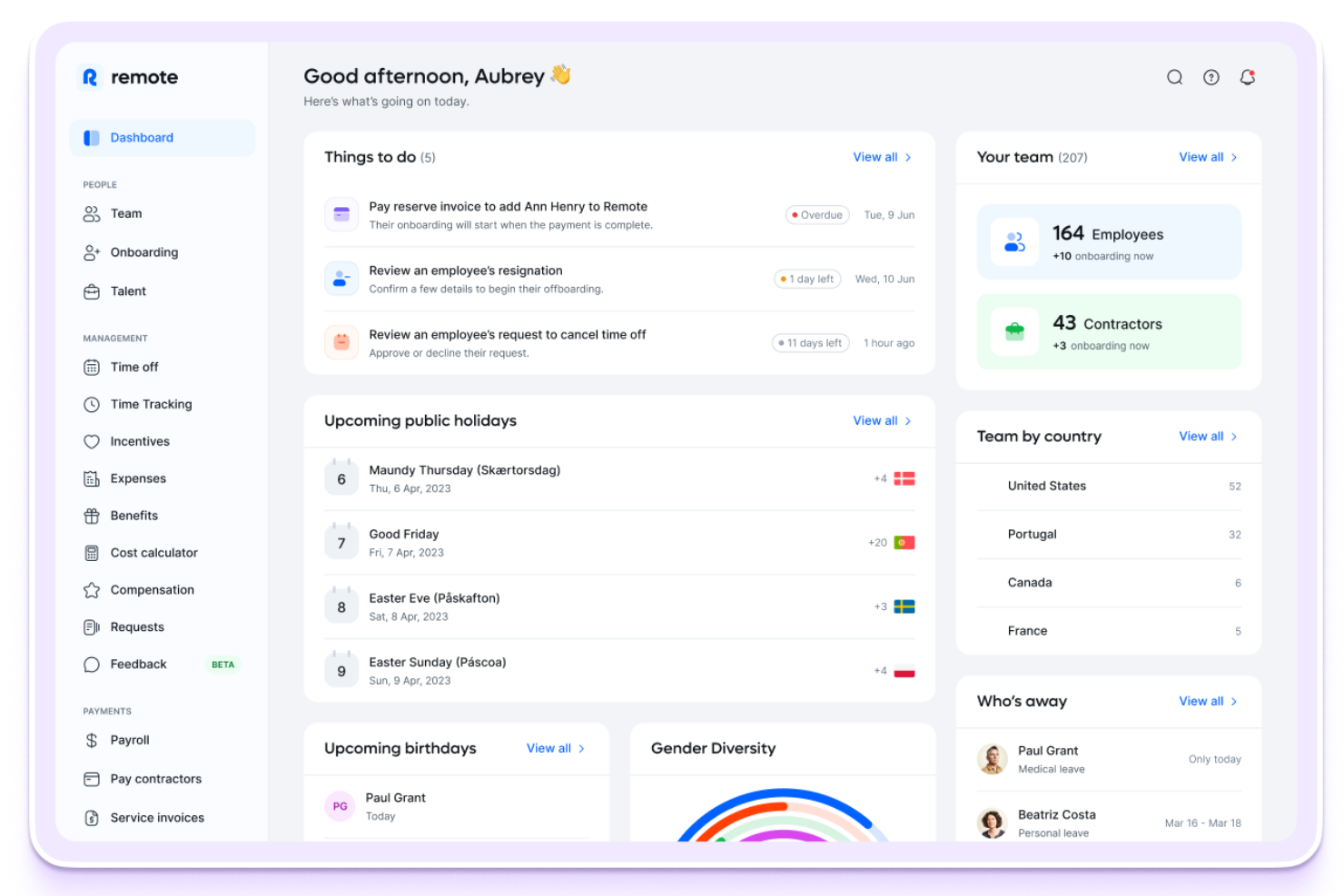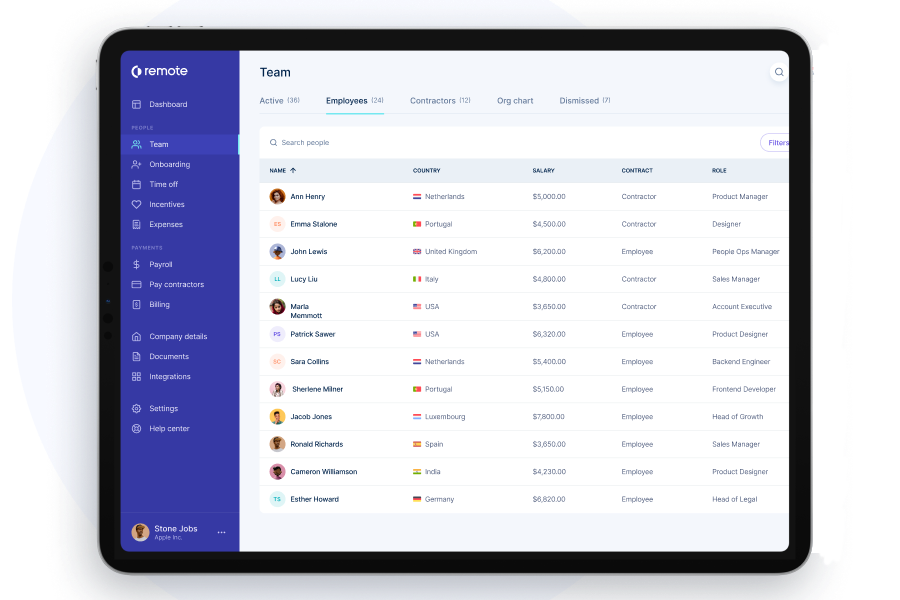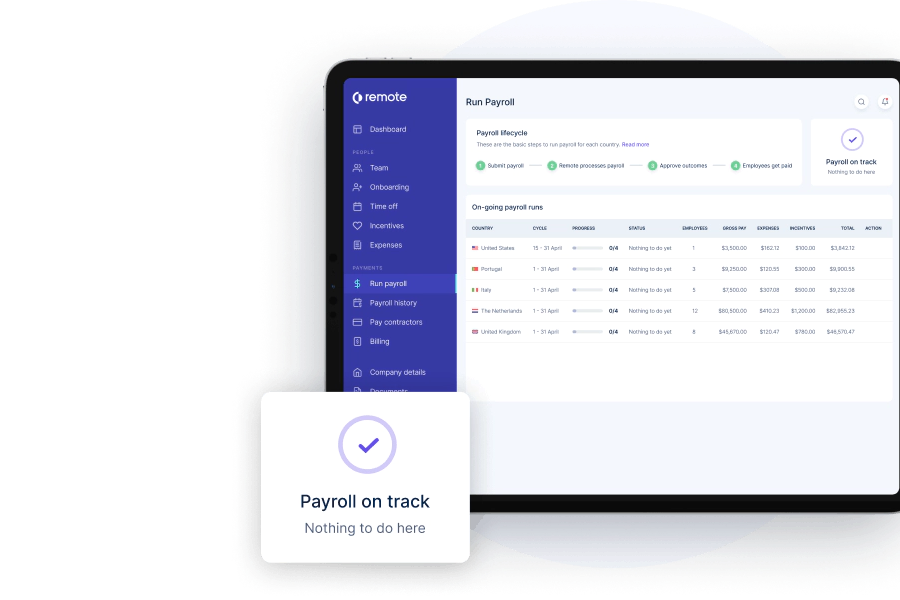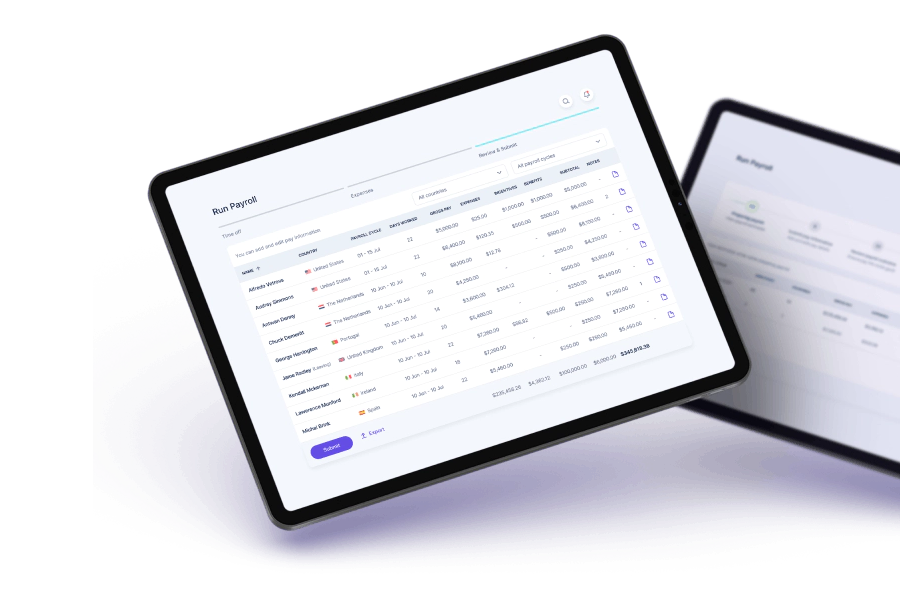
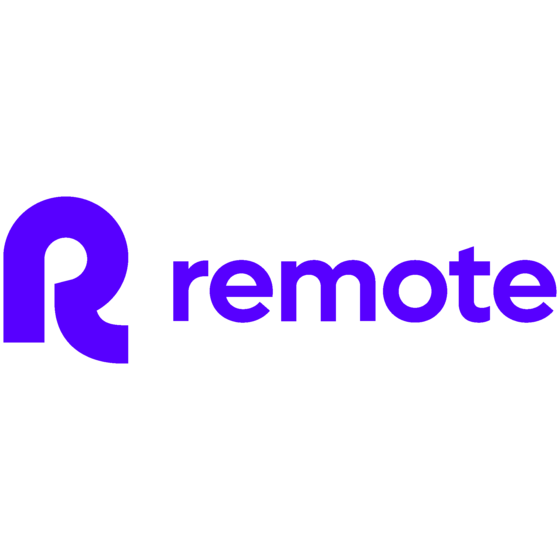
Deel vs. Remote: Comparison & Expert Reviews For 2025
While both Deel and Remote aim to ease the complexities of international hiring, they differ in pricing structures and specific features that might be crucial for your team's needs.
In this article, you'll find a detailed comparison of the tools, including their features, pros and cons, pricing, and more, as well as their role as an employer of record (EOR).
Deel vs. Remote: An Overview
Why Trust Our Software Reviews
Deel vs. Remote Pricing Comparison
| Deel | Remote | |
|---|---|---|
| Free Trial | Free trial + demo available | Free trial available |
| Pricing | From $29/month | From $29/user/month |
Get free help from our project management software advisors to find your match.
Get Expert AdviceOpens new windowDeel vs. Remote Pricing
Deel pricing operates on a flexible model, offering various plans that can include additional costs for premium features or specific services.
Remote pricing similarly provides tiered plans, but users should be aware of potential extra charges for advanced functionalities or compliance services.
To select the tool with the right pricing for your needs, evaluate the specific features and services you require, and consider trialing both platforms to understand which offers the most value for your unique situation.
Deel vs. Remote Feature Comparison
With Deel’s global payroll and compliance tools, you can easily manage international hires, ensuring you’re always aligned with local labor laws, which is ideal for companies expanding into new markets.
In comparison, Remote’s onboarding feature is great for swiftly integrating new team members, making it invaluable for fast-growing startups.
Both tools offer unique advantages; Deel excels in compliance, while Remote shines in onboarding efficiency.
| Deel | Remote | |
|---|---|---|
| API | ||
| Application Tracking | ||
| Batch Permissions & Access | ||
| Compliance Tracking | ||
| Contract Management | ||
| Data Export | ||
| Data Import | ||
| Data Visualization | ||
| Database Search | ||
| Document Management | ||
| Employee Database | ||
| Employee Onboarding | ||
| Employee Training | ||
| External Integrations | ||
| HRIS Integration | ||
| Mobile App | ||
| Multi-Currency | ||
| Multi-User | ||
| Notifications | ||
| Password & Access Management | ||
| Payroll | ||
| Report & Compliance | ||
| Risk Assessment | ||
| Scheduling | ||
| Tax Management | ||
| Timesheets |
Get free help from our project management software advisors to find your match.
Get Expert AdviceOpens new windowDeel vs. Remote Integrations
| Integration | Deel | Remote |
| QuickBooks | ✅ | ✅ |
| Xero | ✅ | ✅ |
| BambooHR | ✅ | ❌ |
| Rippling | ✅ | ❌ |
| Expensify | ✅ | ❌ |
| TSheets | ✅ | ❌ |
| Clockify | ✅ | ❌ |
| PayPal | ✅ | ✅ |
| Wise | ✅ | ✅ |
| API | ✅ | ✅ |
| Zapier | ❌ | ✅ |
With Deel's integration with QuickBooks, you can effortlessly sync payroll data, ensuring accurate financial reporting and reduced manual entry, which is perfect for finance teams managing international payroll.
Remote's Zapier integration is also great for automating tasks across different apps, making it incredibly useful for HR teams looking to streamline workflows without heavy IT involvement.
Both tools offer integrations that cater to different needs; Deel simplifies financial management, while Remote enhances workflow automation.
Deel vs. Remote Security, Compliance & Reliability
| Factor | Deel | Remote |
| Data Privacy | Uses GDPR-compliant practices to ensure data privacy, offering robust data protection for international clients. | Adheres to GDPR and CCPA standards, providing strong data privacy measures for global operations. |
| Regulatory Compliance | Offers localized compliance support, offering tailored solutions to meet specific country regulations. | Provides compliance automation tools to help you stay in compliance with local labor laws and regulations. |
| Encryption | Employs advanced encryption protocols to protect sensitive data during transmission and storage. | Uses end-to-end encryption to safeguard all data exchanges, ensuring confidentiality and integrity. |
| System Reliability | Guarantees 99.9% uptime, ensuring consistent access to critical HR functions. | Ensures high system availability with redundant infrastructure, minimizing downtime risks. |
Deel and Remote both offer robust security and compliance features, but Deel excels in localized regulatory support.
To evaluate these features, identify the specific compliance needs of your business and review each vendor's data protection policies and uptime guarantees to find the best fit for your company.
Deel vs. Remote Ease of Use
| Factor | Deel | Remote |
| User Interface | Offers a clean and intuitive interface, making navigation straightforward for HR tasks. | Provides a user-friendly dashboard that simplifies access to key features and tools. |
| Onboarding Experience | Streamlined onboarding process with step-by-step guides to help you quickly set up new hires. | Offers comprehensive onboarding resources, including tutorials to assist in smooth transitions. |
| Setup | Requires minimal setup time, allowing you to start managing employees swiftly. | Quick and hassle-free setup, with automated tools to aid in the initial configuration. |
| Support | Provides 24/7 customer support with live chat options for immediate assistance. | Offers extensive support resources, including a dedicated help center and responsive email support. |
Deel is incredibly easy to navigate, with its simple interface making HR tasks feel less daunting, but it can be challenging if you need extensive customization options.
Alternatively, Remote shines with its onboarding resources, making it an excellent choice for teams new to EOR solutions. However, its interface can feel overwhelming due to the breadth of features available.
Deel vs Remote: Pros & Cons
Deel
- Built-in legal and tax compliance tools make international hiring less risky for your business.
- It simplifies contractor and employee payments in over 120 currencies, reducing administrative hassle.
- Deel excels in managing global payroll and compliance, ensuring your team adheres to local labor laws.
- It lacks full HRIS functionality, focusing heavily on payroll and contractor management.
- Customization of reports and workflows is limited compared to more robust HR systems.
- Deel can be pricey for small teams or startups with limited hires.
Remote
- Your team benefits from excellent global payroll management.
- It simplifies compliance with local labor laws and regulations.
- You can easily manage remote teams with its user-friendly platform.
- Your team may experience a learning curve during initial setup.
- Some users report occasional delays in customer support response.
- You might find limited customization options for specific needs.
Best Use Cases for Deel and Remote
Deel
- Tech Startups Deel simplifies compliance and payroll for startups aiming to hire talent across borders without establishing local subsidiaries.
- Remote Teams Your remote team can easily manage global payroll and compliance, reducing the administrative burden on HR.
- Consulting Firms Deel’s legal compliance tools are invaluable for consulting firms with international projects and contractors.
- Small to Medium Enterprises SMEs benefit from Deel’s ability to handle diverse currencies and reduce tax compliance risks.
- IT Companies IT companies can leverage Deel’s tools to manage international developers and contractors efficiently.
- Global HR Departments Deel assists HR departments in managing international employee and contractor payments, ensuring compliance with local laws.
Remote
- Tech Startups Remote simplifies global hiring, allowing your startup to scale without worrying about compliance.
- Expanding Companies You can enter new markets seamlessly with Remote’s global payroll and legal expertise.
- HR Departments Your team will streamline processes with Remote’s easy-to-use platform and compliance tools.
- Remote Teams Remote helps you manage payroll and compliance efficiently across different countries.
- Consulting Firms You can focus on client projects while Remote handles complex international HR tasks.
- E-commerce Businesses Remote supports your global sales operations by managing international employee compliance.
Get free help from our project management software advisors to find your match.
Get Expert AdviceOpens new windowWho Should Use Deel, and Who Should Use Remote?
In my opinion, Deel is most suitable for companies that are rapidly expanding into new international markets and need robust compliance support. It works well for teams that prioritize straightforward payroll and compliance management across different countries.
On the other hand, Remote is ideal for startups and tech companies that value automation and a comprehensive onboarding experience. If your team is seeking flexibility and integration capabilities to streamline operations, Remote might be the ideal choice for you.
Differences Between Deel and Remote
| Deel | Remote | |
|---|---|---|
| Automation | Focuses on payroll and compliance automation for international hires. | Automates onboarding and integrates well with workflow tools. |
| Compliance | Excels in localized compliance, helping you meet specific country regulations. | Automates compliance tasks, ensuring alignment with local laws. |
| Onboarding | Provides step-by-step guides for quick employee setup. | Offers tutorials and resources to support smooth onboarding. |
| Pricing | Offers flexible plans with options for premium add-ons. | Provides tiered plans with potential extra charges for advanced features. |
| User Interface | Features a clean interface, making HR tasks simple to navigate. | Comprehensive interface offering a wide range of features. |
| Read Deel ReviewOpens new window | Visit RemoteOpens new window |
Similarities Between Deel and Remote
| Customer Support | Each tool offers robust customer support, including live chat and extensive resources, to assist whenever needed. |
|---|---|
| Data Security | They utilize advanced encryption and adhere to the GDPR, ensuring your data is protected and compliant with relevant privacy laws. |
| Flexible Contracts | The platforms offer flexible contracts, letting you tailor agreements to fit your team's specific needs and employment terms. |
| Global Reach | Deel and Remote enable you to hire and manage employees worldwide, providing EOR solutions across multiple countries. |
| Integrations | Both offer integrations with popular tools like QuickBooks and PayPal, allowing you to streamline your HR and finance workflows. |
| Read Deel ReviewOpens new window Visit RemoteOpens new window | |

